A Good Reason for President Trump to be Angry
On February 6, the Financial Times bannered a scoop under this headline: “Donald Trump ‘apoplectic’ in call with Boris Johnson over Huawei.”
The argument was over the decision of the British prime minister to allow the Chinese-government-controlled tech manufacturer Huawei to participate in Britain’s next-generation cellular network, known worldwide as 5G. In other words, the United Kingdom has just made an enormous decision, full of consequences for not only the U.K., but also for the U.S.
5G, of course, is the new big thing in tech; it will accelerate the speed of Internet networks by a hundred-fold. And as such, 5G will be in the middle of every communication and every transaction. 5G also includes the Internet of Things, which has the potential to link together just about any object, man-made or natural, in a “smart network.” That will be great for manufacturing, inventory, logistics—and, oh yes, for better or worse, for surveillance.
Moreover, 5G will reach deep into the military; the vital variables of situational awareness and command-and-control—governing everything from missile defense to satellite surveillance to nuclear deterrence—will be shaped by 5G.
Yet most of this is in the future, because the 5G hardware, including stations and routers, has yet to be purchased and installed. And when it is, that will be a multi-hundred-billion-dollar infusion for the seller, as well as a huge security vulnerability for the purchaser.
Thus the idea that Huawei, which is nothing more than a cat’s paw for the People’s Liberation Army of China, could soon be making Britain’s 5G equipment is, indeed, alarming. This author has long supported Boris Johnson’s efforts to extricate Britain from the European Union—and applauds the successful conclusion of the Brexit process under Johnson’s leadership—and yet it would be an epic tragedy if the U.K. were to emancipate itself from the E.U. only to surrender itself to China.
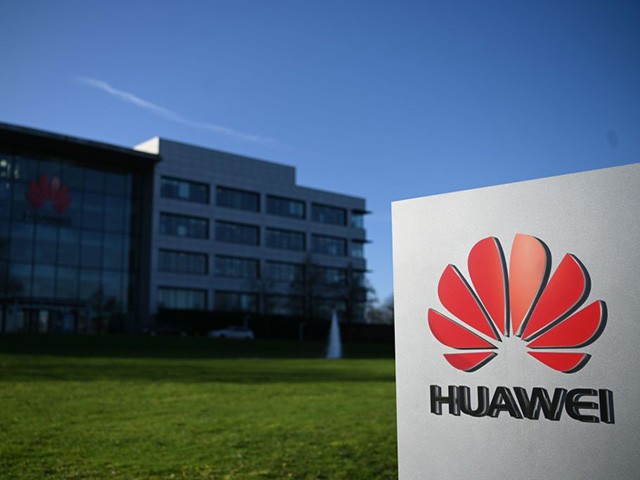
A photograph shows the logo of Chinese company Huawei at its main U.K. offices in Reading, west of London, on January 28, 2020. (DANIEL LEAL-OLIVAS/AFP via Getty Images)
Moreover, since Britain is so closely integrated with America—culturally, economically, and militarily—any decision by London on 5G becomes, in effect, a decision for Washington, DC, to grapple with.
So yessiree, Trump was right to be “apoplectic” about the Brits’ 5G decision. As the FT also reported, Trump was “livid” and the conversation “very difficult.” Good for Trump!
What will happen next in the United Kingdom on 5G is unclear. All we know for sure is that the sovereignty of the U.K. includes the sovereign right to make a mistake.
Of course, the decision to de-couple the two countries was made back in 1776, and so in the final analysis, whatever the mistakes the British might make, the United States must look out for America, first. And if that means carving out a different path on 5G, so be it.
The Trump Administration Prepares a Serious Response to a Serious Problem
Interestingly, also on February 6—the same day that FT reported on Trump’s angry phone conversation with Johnson—U.S. Attorney General William Barr delivered a speech in which he outlined a plausible, if imperfect, solution.
Speaking to the Center for Strategic and International Studies in Washington, DC, Barr said that the U.S., and the West, faced a dilemma on 5G—the dilemma being that the Chinese are currently the best in the world at making 5G technology. As Barr put it, “It’s all very well to tell our friends and allies that they shouldn’t install Huawei, but whose infrastructure are they going to install?” Barr added, “There are only two companies that can compete with Huawei right now: Nokia and Ericsson.”
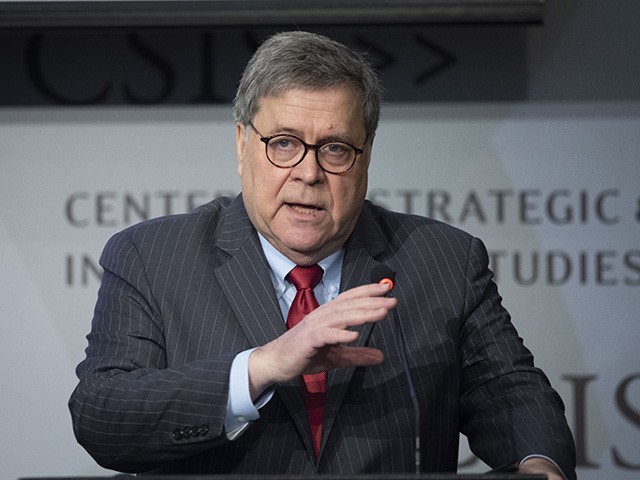
Attorney General William Barr gives the keynote address to the Center for Strategic and International Studies, CSIS China Initiative Conference, February 6, 2020, in Washington, DC. (Cliff Owen/AP Photo)
We might pause to note that Nokia is headquartered in Finland, while Ericsson is based in Sweden. In other words, Barr was conceding the fact there’s no American company competitive in 5G hardware. That’s an astonishing admission about the current sad state of the U.S. tech manufacturing, and we’ll come back to that, but first, let’s hear what else Barr had to say.
The U.S., Barr continued, should be “actively considering” investments in Ericsson and Nokia, to accelerate their ability to develop 5G hardware: “We and our closest allies certainly need to be actively considering this approach. The risk of losing the 5G struggle with China should vastly outweigh all other considerations.”
The stakes, the attorney general continued, are high: “If the industrial internet becomes dependent on Chinese technology, China would have the ability to shut countries off from technology and equipment upon which their consumers and industries depend. For China, success is a zero-sum game.”
We can add: The “industrial internet” Barr refers to overlaps, very much, with the “military internet.”
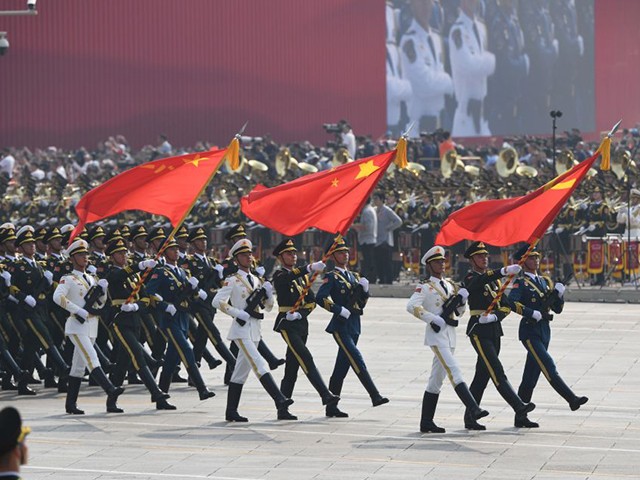
Chinese soldiers march with the national flag, flanked by the flags of the Communist Party of China (R) and the People’s Liberation Army (L) in Beijing on October 1, 2019, to mark the 70th anniversary of the founding of the People’s Republic of China. (GREG BAKER/AFP/Getty Images)
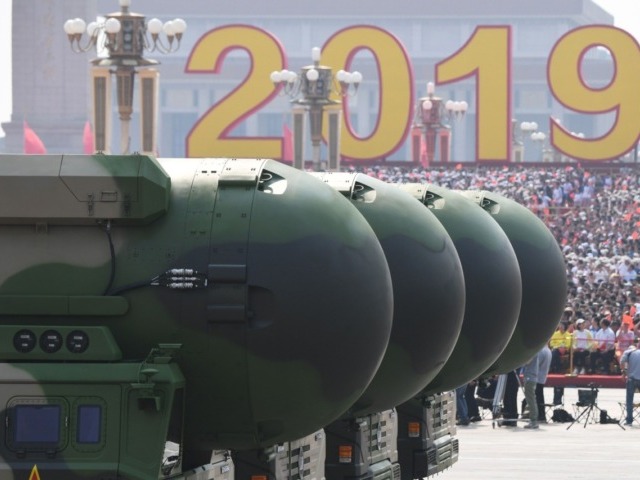
China’s DF-41 nuclear-capable intercontinental ballistic missiles are seen in Beijing on October 1, 2019, to mark the 70th anniversary of the founding of the People’s Republic of China. (GREG BAKER/AFP via Getty Images)
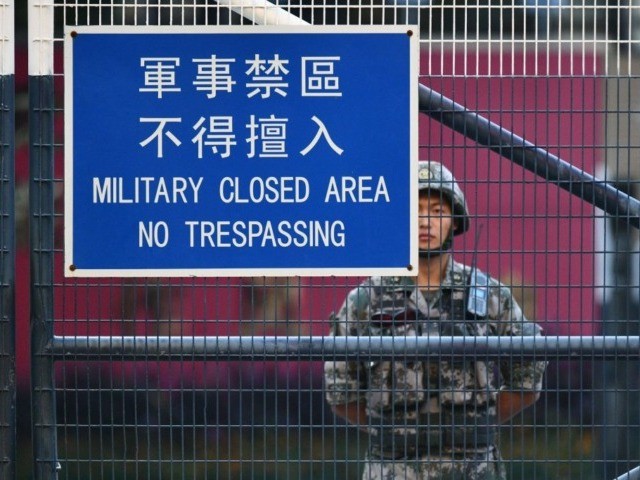
A member of China’s People’s Liberation Army (PLA) stands guard inside Osborn Barracks in Kowloon Tong in Hong Kong on November 16, 2019. (ANTHONY WALLACE/AFP via Getty Images)
Reacting to Barr’s speech, William Evanina, director of the National Counterintelligence and Security Center, a federal defense agency, added, “This is a call to arms for all of society. We have to look at our economic security as part of our national security.”
So Trump, Barr, and Evanina are correct: 5G is a very big deal, and for both economic and military reasons, the U.S. can’t afford to lose this tech-competition.
So now to the most immediate question: Does Barr have the right prescription, namely, that Uncle Sam should invest in a Finnish or Swedish company—or perhaps both?
Critics will say, of course, that Barr is advocating “socialism.” And in a limited sense they’re correct, although, in truth, Barr is pushing for the kind of ad hoc military socialism that’s been standard practice in the U.S. for centuries. That is, this capitalist country has always invested directly in vital defense production.
For instance, from the dawn of the republic through World War Two, the U.S. Navy built almost all of its ships in publicly owned shipyards, from Brooklyn, New York, to Charleston, South Carolina, to Puget Sound, Washington State. More recently, the Pentagon and related national-security outfits have invested directly in private companies through such entities as DARPA and IN-Q-TEL.
And even more broadly, all of the Pentagon’s spending on goods and services can be seen as a kind of permanent public-private partnership with defense contractors. To be sure, not everyone is a fan of what’s known as the “military-industrial complex,” and yet there it is, spending a trillion dollars a year—and it’s not going anywhere.
So Barr’s idea of investing in 5G is fully in keeping with this tradition, except for one thing, which merits more attention: Nokia and Ericsson are foreign companies.
Assuming that Barr is correct when he says that there is, in fact, no domestic company that can compete in 5G, then we might reluctantly agree that the attorney general has the optimum solution in the short run: Invest in those foreign companies.
Indeed, Barr’s vision of harmonious cooperation with those European firms and their countries offers the prospect of a new kind of cooperation with Europe, based on making a better deal than our current arrangement with, say, NATO—which, as Trump says, has been plagued by freeloading member-countries. So again, hats off to Barr for grappling seriously with a serious problem.
Yet still, we Americans have the right ask: What the heck happened to our industry? What is wrong with us and our know-how? Why can’t we make 5G here at home?
Yes, indeed, those are good questions. What did happen to the old high-tech manufacturing companies, such as Atwater-Kent, RCA, and Zenith? And what about more recent manufacturers, such as Cisco, Gateway, Hewlett-Packard? And whatever became of that multiple-Nobel-Prize winning tech crown jewel, Bell Labs?
The fates of all those companies are worth studying in detail, albeit some other time, because they provide many different lessons for us today. Some failed or faltered through mismanagement and bad luck—and that, of course, is the way things go in a free-enterprise system, which provides no guarantee of success, only the right to give it a try.
And yet other tech companies faded because of destructive U.S. government policies, including, of course, flabby trade policies. And still others were enfeebled by the aggressively nationalist-mercantilist export policies of Japan, South Korea, and, most of all, China.
To be sure, many American companies have adapted to this reshaped global-industrial reality and done quite well for themselves. For instance, Apple is a trillion-dollar American company, and yet it makes all its iPhones—including the ones used by the Department of Defense—in China. That might be good for Apple, but it’s not so good for the economic prosperity, or national security, of the United States.
Made in USA—and What Say American Presidents? Or the Pentagon?
Yes, of course, there’s still plenty of tech genius in America—maybe more than any other country in the world, including China—and yet somehow, those American smarts have failed to stay focused on the brass tacks of actually making electronic hardware.
For sure, it’s great to know how to code software and thus make gobs of money on the Internet, as the Silicon Valley tech giants prove every day. And yet at the same time, if all that profitable software runs on Chinese-made equipment, then it’s likely that China will soon know absolutely everything we know. Moreover, it’s possible that they’ll soon enough be in control of it all, too.
All these issues, of course, were mostly ignored in the last three decades, as China was emerging as a major technological power—and as a strategic threat.
For President Bill Clinton, the overriding goal was more free trade with China, culminating in the permanent normalization of trade relations with that country, as well as its entry into the World Trade Organization. (And oh yes, there was that matter of all the U.S. technology that made its way to China in return for donations to the Democratic National Committee.)
For President George W. Bush, the overriding goal was to bring “democracy and freedom” to the Middle East, all the while mostly ignoring China. And we know how that worked out: The Middle East is even worse off, and the Chinese ate our lunch.
For President Barack Obama, the overriding goal was, well, unclear, because he had many goals. He wanted to fix the Middle East, of course, and yet, through incompetence, succeeded only in making it even worse. And he had lots of other ideas, too—none of which had much value in countering China.
So now, finally, to Trump and his administration: Having brought in China-hawkish advisers such as Peter Navarro—who never would have been hired in the administration of any of Trump’s opponents in 2016, Republican or Democrat—the president is causing a broad shift in U.S. thinking, of which Barr’s speech is a welcome contribution.
But just one last thing: Why was it that inside the administration, Attorney General Barr was the figure articulating this new and important step to counter China? Okay, somebody had to go first, but why was it the Justice Department and not the Pentagon?
After all, since 5G is a key component of national security, shouldn’t the secretary of defense, Mark Esper, have been the man taking the lead on this critical national security matter? Yes, of course, Esper has been on the job only since July, and in those few months he’s had his hands full with Iran. And yet it’s still true that if one wishes to make a national security argument, it’s probably best if it comes from the Defense Department.
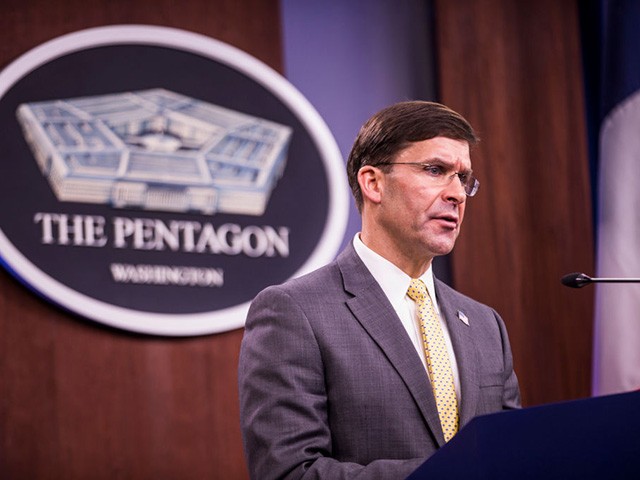
Secretary of Defense Mark Esper speaks during a news conference at the Pentagon on January 27, 2020, in Arlington, Virginia. (Zach Gibson/Getty Images)
As we have seen, in addition to its overall mandate on national security, the Pentagon is the biggest financial player in defense technology. And in fact, no doubt there are plenty of generals, experts, and contractors with strong and considered opinions on 5G. So why haven’t their voices bubbled up to the secretary’s office in the E-Ring of the Pentagon, and from there to the nation as a whole?
In fact, there’s even a glorious tradition of using American military muscle to establish entire new industries—industries that have won wars and gone on greatly to enrich the nation in the subsequent peacetime. As this author noted last year, during World War Two, we cooked up, if that’s the right word, a spanking-new synthetic-rubber industry. And similar stories of effective government-industry cooperation during World War Two can be told about aviation, nuclear power, medicine, and, of course, electronics.
So now today, three-quarters-of-a-century later, we might step back and ask: What happened to the Pentagon’s voice on these defense-industrial issues?
And the answer, of course, is that it’s been swallowed in the sands of the Middle East and issues of counter-insurgency and nation-building. As everyone knows, the biggest budgets, and the most honors, have gone to those fighting, or supervising, the wars in Iraq, Afghanistan, Libya, Syria, and Yemen, among other places. That’s why the names of the generals that ordinary people are most likely to have heard of—Petraeus, Mattis, McChrystal, McRaven—have all been associated with these “endless wars.”
We can stipulate that these generals didn’t start these “endless wars,” and that they all have served their country honorably. (Instead, we can focus our ire on the civilian politicians who started those quagmires, and weren’t all that smart, and weren’t always honorable.)
Yet still, there’s the question of whether the Pentagon has been focused enough, these past few decades, on the rise of China. And actually, that’s not much of a question: It hasn’t been.
In fact, it’s hard to think of a flag-rank officer—or top civilian presidential appointee at DOD, active or retired—who has sounded the alarm on the twinned threats of China’s high-tech industrialization and America’s high-tech de-industrialization. And that’s how we got to where we are today: We can’t make 5G, at least not right away.
So now it’s Bill Barr, a civilian, scoping out the path to a better industrial future for the U.S. He’s pointing to a danger far greater than the failure of nation-building in Fallujah or Kandahar—although, of course, we already knew that those nation-building efforts have been costly failures, even if the military itself is still in denial, at least officially.
Yes, let’s hope that the Pentagon wakes up from its Middle East mirage and gets focused on the tech challenge from China.
Before it’s too late.

COMMENTS
Please let us know if you're having issues with commenting.